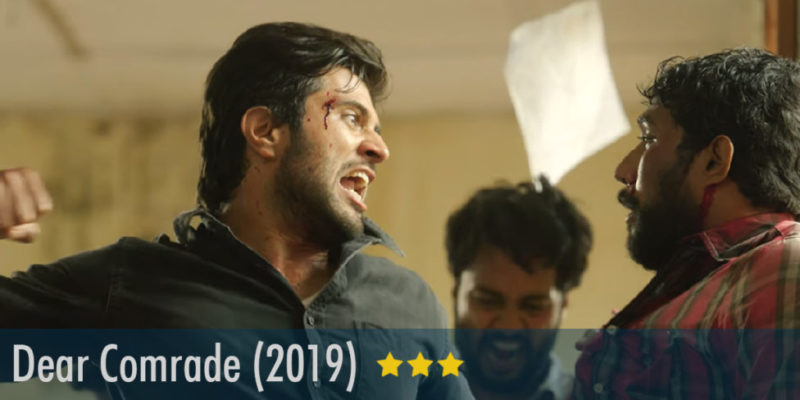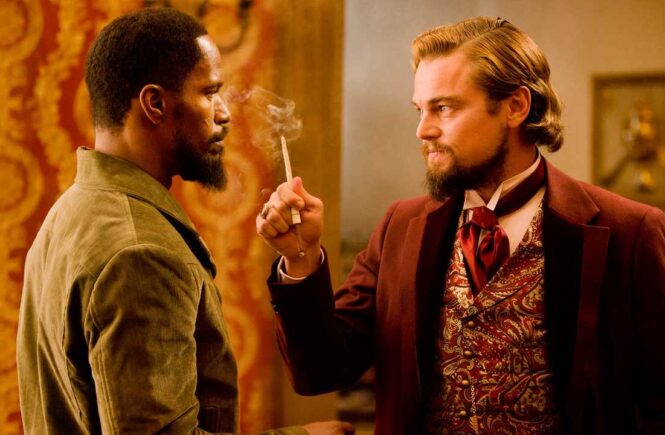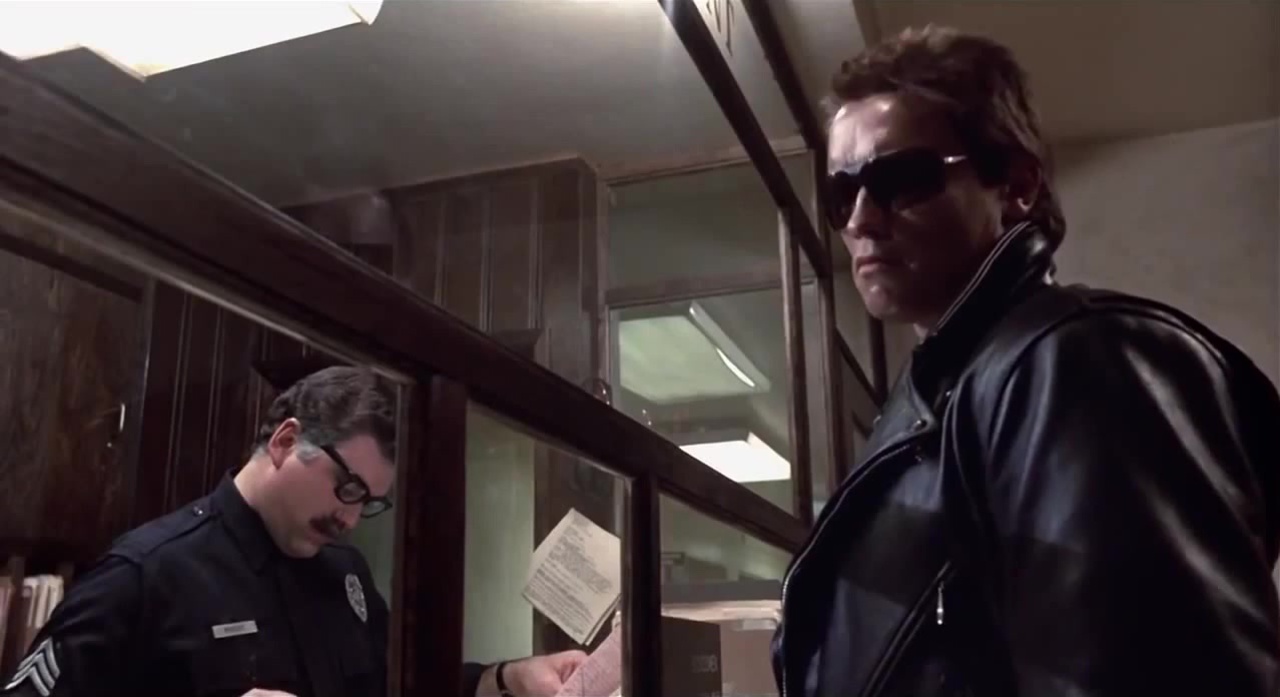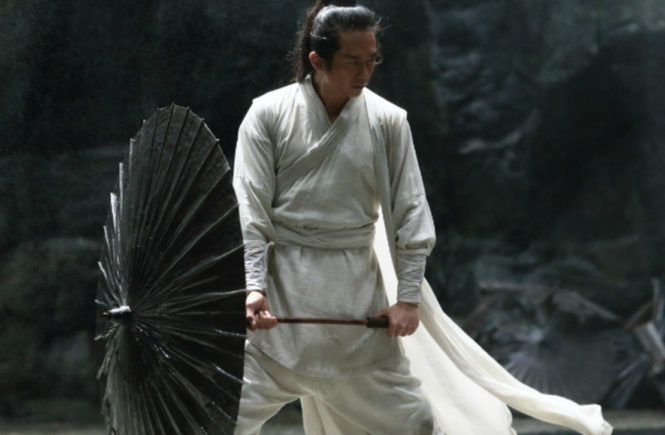Dear Comrade is a well-made film, but one with many flaws and an ending that is quite over-dramatic.
The first half of the film is really fun to watch though, and some may even call it a blend of Arjun Reddy and Geetha Govindam. However, what I was impressed with was how well the events that happen in the first half connect to events in the second. For example, one of the first scenes we see is Vijay’s character (Boddy) finding out that Anita almost committed suicide because she had been harassed by a bunch of local men. He calls her a coward and then proceeds to beat up the men who harassed her. This scene serves to not only set-up Vijay’s character, his temper and energy, but also the second half of the film where he will have to confront the same issue with the woman he loves, Rashmika’s character (Lilly). However, this is not so easy the second time around as she is someone who does not like to get into fights because her brother had died in one.
The characters of Bobby and Vijay are written with care and seeing these two struggle in the second half due to their differing beliefs was fantastic to watch. Vijay and Rashmika also do a fine job portraying these characters, and they strike up the right kind of chemistry that pulls you in and makes you care. The first half involves them falling in love while the second half tests their love and who they are. “Dear Comrade”, in this respect, goes deeper than most other films in this category will. Though the first half may seem like your usual fare, with beautiful characters living their beautiful lives, there is a lot going on underneath that elevates these characters above the cookie-cutter relationships you normally see.
However, my main issue with the film has to do with the second half where some choices are made that didn’t quite work for me.
For one, there is an odd subplot about sound therapy that never really goes anywhere and is forgotten about by the time we get to the end. It’s used as a healing method for past traumas; however, it’s never really explained and the whole way Lilly’s character gets “healed” by these methods seems arbitrary and silly as a result. Which is odd because the film makes it seem as though Bobby is so invested in his sound therapy that he had completely gotten over Lilly, which we later find out to not be true, but then why show Bobby almost getting ready to leave Hyderabad and Lilly to pursue this project further, or why show Bobby seemingly using Lilly to get footage for his project making it seem as though he doesn’t really care about her feelings? If the truth, as it is later revealed, was that he could never get over her and was still thinking about her, how is it that he was so close to easily leaving her the second time around? Not only that but the fragile psychotic issues that Lilly’s character faces in the second half, or so said by the psychiatry doctor, are never really seen despite her being carried away on a road trip or a cricket ball falling in front of her. Was this sound therapy really that revolutionary or was the doctor playing games? These kinds of sides make the second half a little more complicated than it ought to be.
My biggest issue with the film was the ending though. The whole courtroom scene seemed like a joke to me because the judges are presented with so many conflicting stories and drama, how they even made a proper decision by the end of it was beyond me and just seemed unbelievable. Not only that but I also didn’t believe Lilly’s character openly speaking to the media about comrades. So many films now a days seem to end on some podium or on some media event, we saw it with NGK, Maharishi, Bharat Ane Nenu, Sarkar and now Dear Comrade. For some reason, there is this infantile need for the characters in these films to give a social PSA to a media outlet in the end. It just all seems so out of character and is simply not needed.
What the ending of the film makes clear; however, was that this was Lilly’s story, not Bobby’s. Bobby never drastically changes in the film, atleast not in the ways that Lilly would have wanted. It is Lilly who changes by the end of the film, she begins to fight for herself instead of receeding away. That the film tells this story in the context of sexual abuse is interesting and current. However, I couldn’t stop myself from thinking how Bobby and Lilly’s relationship would endure given the fact that the worse part about Bobby, his tendency to get angry and violent, is still with him in the end. Though Bobby teaches Lilly to fight for herself, he is still the hotheaded individual who had pushed Lilly away at one point. So is this really the happy ending that we are made to believe, will Lilly really be happy with Bobby despite knowing that he still has that part of him which she hates? I don’t think so and this is all a matter of debate but I wish the film would have explored this issue a little more.
None the less, this film has it’s moments. It is certainly well filmed and well directed. First timer, Bharat Kamma does a good job with this film. It is way too long and certain scenes, especially those involving sound therapy, could have been clarified or completely cut out, but I had a good time with the film and will certainly look out for his next.




